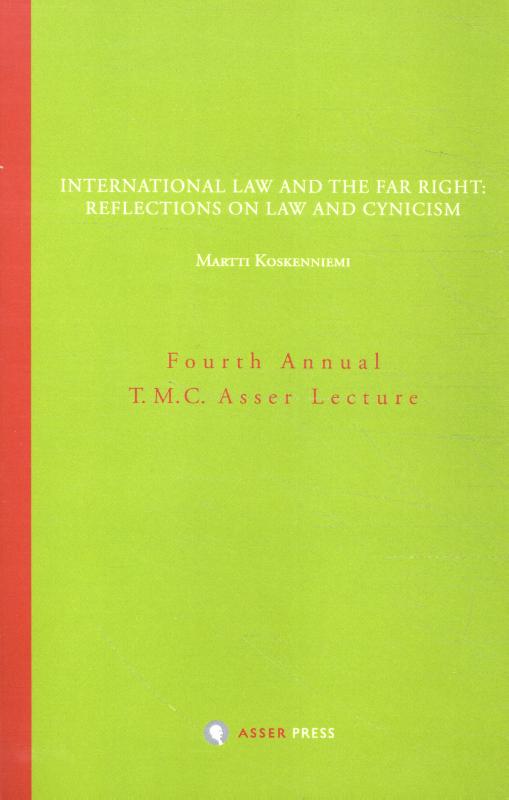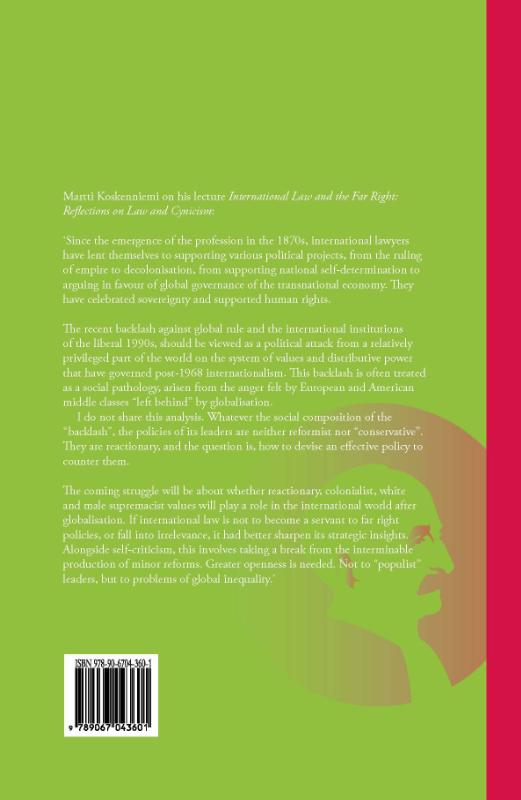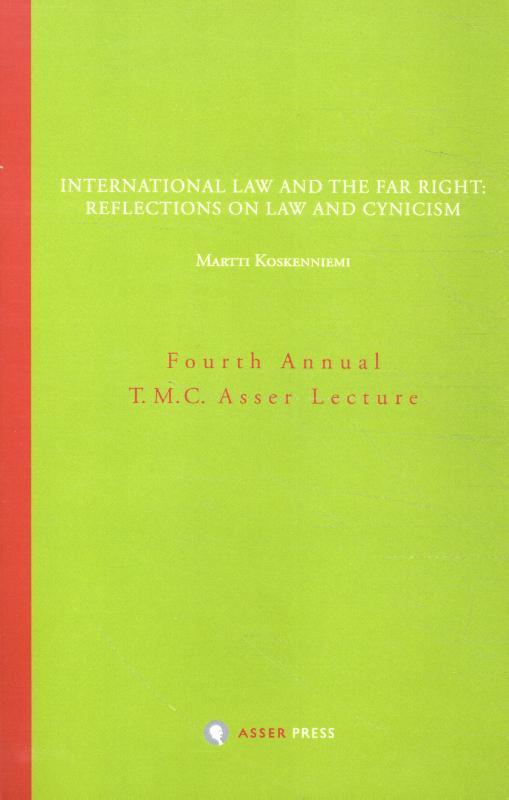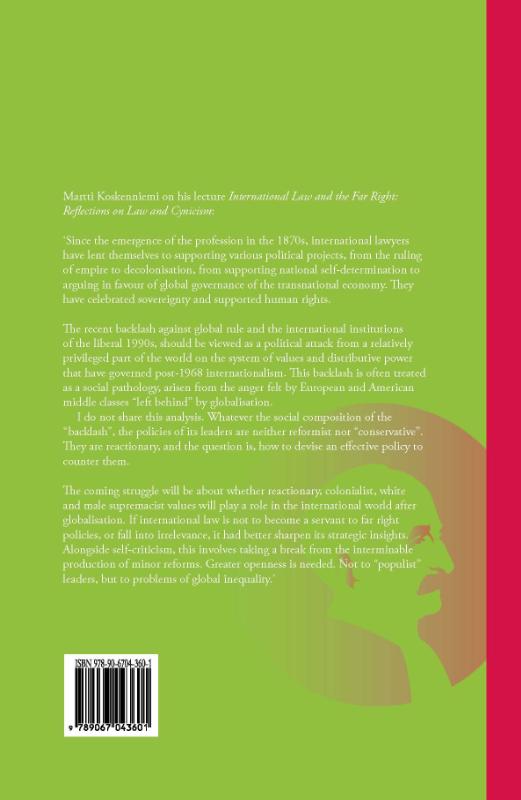- Engels
- Study
- Law
- intern. publiekrecht
- INTERNATIONAL LAW AND THE FAR RIGHT
KOSKENNIEMI, MARTTI
INTERNATIONAL LAW AND THE FAR RIGHT
10,00incl BTW
Vertrouwd sinds 1927
Persoonlijke aandacht en advies
Vanaf 17,50 gratis verzenden NL & BE
Meer dan 150.000 artikelen online
Omschrijving INTERNATIONAL LAW AND THE FAR RIGHT
Martti Koskenniemi on his lecture ''International Law and the Far Right: Reflections on Law and Cynicism'':
''Since the emergence of the profession in the 1870s, international lawyers have lent themselves to supporting various political proj
ects, from ruling of empire to decolonisation, from supporting national self-determination to arguing in favour of global governance of the transnational economy. They have celebrated sovereignty and supported human rights.
The recent backlash a
gainst global rule and the international institutions of the liberal 1990s, should be viewed as a political attack from a relatively privileged part of the world on the system of values and distributive power that have governed post-1968 internationa
lism.
This backlash is often treated as a social pathology, arisen from the anger felt by European and American middle classes "left behind" by globalisation. I do not share this analysis. Whatever the social composition of the "backlash", the p
olicies of its leaders are neither reformist nor "conservative". They are reactionary, and the question is, how to devise an effective policy to counter them.
The coming struggle will be about whether reactionary, colonialist, white and male supr
emacist values will play a role in the international world after globalisation. If international law is not to become a servant to far right policies, or fall into irrelevance, it had better sharpen its strategic insights. Alongside self-criticism, t
his involves taking a break from the interminable production of minor reforms. Greater openness is needed. Not to "populist" leaders, but to problems of global inequality.''
''Since the emergence of the profession in the 1870s, international lawyers have lent themselves to supporting various political proj
ects, from ruling of empire to decolonisation, from supporting national self-determination to arguing in favour of global governance of the transnational economy. They have celebrated sovereignty and supported human rights.
The recent backlash a
gainst global rule and the international institutions of the liberal 1990s, should be viewed as a political attack from a relatively privileged part of the world on the system of values and distributive power that have governed post-1968 internationa
lism.
This backlash is often treated as a social pathology, arisen from the anger felt by European and American middle classes "left behind" by globalisation. I do not share this analysis. Whatever the social composition of the "backlash", the p
olicies of its leaders are neither reformist nor "conservative". They are reactionary, and the question is, how to devise an effective policy to counter them.
The coming struggle will be about whether reactionary, colonialist, white and male supr
emacist values will play a role in the international world after globalisation. If international law is not to become a servant to far right policies, or fall into irrelevance, it had better sharpen its strategic insights. Alongside self-criticism, t
his involves taking a break from the interminable production of minor reforms. Greater openness is needed. Not to "populist" leaders, but to problems of global inequality.''
Specificaties
- MerkT.M.C. Asser Press
- GroepRECHT ALGEMEEN (820)
- Barcode9789067043601
- LeverstatusActief
Reviews
0.0/5.0
Gemiddelde uit 0 reviews
Meest behulpzame reviews
Nog geen reviews geschreven




